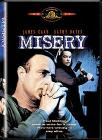 When we speak about Delivering Perfect Service, it is with the aim to carve out a niche in the marketplace by offering services at a level that is decidedly different and superior than other competitors. For those customers that value permier service, price will be a secondary consideration. The mission for the service company then is to continue to improve and focus along that specialty...to invest in differentiation.
When we speak about Delivering Perfect Service, it is with the aim to carve out a niche in the marketplace by offering services at a level that is decidedly different and superior than other competitors. For those customers that value permier service, price will be a secondary consideration. The mission for the service company then is to continue to improve and focus along that specialty...to invest in differentiation.A news item caught my eye that speaks to curious decision-making from management at The Weather Channel. http://news.yahoo.com/s/ap/20100524/ap_on_bi_ge/us_dish_weather_channel_1
It appears that The Weather Channel, previously THE authority on all things weather, has opened up its programming to movies and other general entertainment offerings. We have watched this slippery slope into the entertainment realm for several years as the channel has packaged many weather-related documentaries for its viewers. But the move into general-topic movies has created friction with cable and satellite carriers who view The Weather Channel as a public service channel, particularly for local weather warnings.
 The move follows a trend amongst other specialized television channels in recent years to stray from their original purpose. MTV rarely plays music anymore. The History Channel, A&E, Science Channel, Discovery Channel all have added content such as specialized reality shows like Deadliest Catch on The Discovery Channel, Ice Road Truckers on The History Channel, Hoarders on A&E. These are entertaining shows, but what does Ice Road Truckers have to do with history? And don't get me started on Jon & Kate on The Learning Channel.
The move follows a trend amongst other specialized television channels in recent years to stray from their original purpose. MTV rarely plays music anymore. The History Channel, A&E, Science Channel, Discovery Channel all have added content such as specialized reality shows like Deadliest Catch on The Discovery Channel, Ice Road Truckers on The History Channel, Hoarders on A&E. These are entertaining shows, but what does Ice Road Truckers have to do with history? And don't get me started on Jon & Kate on The Learning Channel.So why do it? The answer is simple....specialized programming is attractive to a select audience. General programming is attractive to a wider audience. The thought is that a smaller share of a larger audience is potentially more lucrative than a larger share of a smaller audience.
For years, The Weather Channel honed its weather-based programming, creating a ubiquitous brand and service for viewers across the country.
But is that about to change? Will we no longer see weather on The Weather Channel?
My View
It is a curious, but common phenomenon. Management looks at the market and realizes that there are many opportunities beyond the borders of its offering. By altering its features, marketing differently, perhaps even changing pricing, companies move into new territory.
The problem is that the value proposition that vaulted the company into its leadership position in the specialty niche may be compromised. The specialty offering may soon be overtaken by competitors, and soon is no longer special.
I have seen it time and again in the benefits marketplace. Competitors serving small companies decide to focus in the large company space; companies that offer a specific product now expand to offer a full-service suite; companies that offer a premier service begin to offer scaled-down versions of the product that are less expensive. And so on.
The end result: the companies gain a few marginal wins, but I have never seen significant marketshare gain for these companies. In the meantime, the focus on the primary specialized business is lessened, and as a result so is the company's differentiation.
The Weather Channel runs the risk of becoming a marginal general programming channel, instead of the valued premier content provider that it was previously.
Before management strays into other markets and generalize their products, they would be advised to think through their current unique competitive positioning and exhaust ways to extract value and keep their products worth the premium dollar their customers are spending.

No comments:
Post a Comment